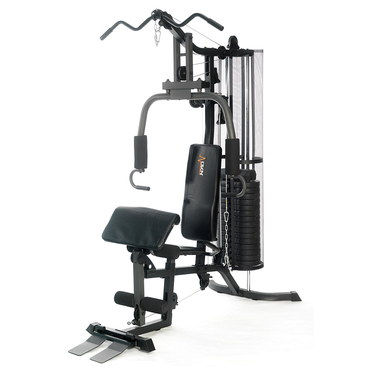 Getok! Telunjuk Geledah Makeup Favorit Milik Fashion Blogger Amelia Bunjamin 112. Hiya, beauty infants. Hai, Sahabat Telunjuk.
Getok! Telunjuk Geledah Makeup Favorit Milik Fashion Blogger Amelia Bunjamin 112. Hiya, beauty infants. Hai, Sahabat Telunjuk.
Get the family 24/7 visiting hours. Catching disorientation early has a very different end result when performed by a member of the family who can be soothing and reassuring, and has the time and inclination to be so. This also allows the hospitalized person’s needs to be met more quickly (like a glass of water or assist to the toilet), whereas offering socialization and interaction.
The commonest free radicals attacking living tissue are reactive oxygen species (ROS)—or oxyradicals. They embrace the peroxyl, nitric oxide and superoxide-anion radicals plus singlet oxygen, peroxynitrite and hydrogen peroxide. Worst of all is the dangerous hydroxyl radical, formed by the mixture of the weaker superoxide radical with hydrogen peroxide. Rosmarinic acid neutralizes the superoxide-anion and thus makes a significant contribution to curbing oxidative injury within the physique.
Other …
 Jake was getting enthusiastic about purchasing some model new gear for his dwelling gymnasium. Enneking told the physician that she was larger, that she’d lost some weight the identical approach she had lost it three or four instances before—seeing how far she may get through the day without consuming, trading solids for liquids, food for sleep. She was hungry on a regular basis, but she was learning to love it. When she did eat, she got panic assaults. Her boss was beginning to notice her erratic habits. Together with its app, Myzone tracks accurately your cardio effort throughout exercise and lets you compete via a social platform to seek out out who is formally the fittest amongst your peer group, with league tables and all the things. The elliptical machine is for anyone trying to get a full-physique, low-impression exercise. Elliptical machines are ideal for older adults and for individuals …
Jake was getting enthusiastic about purchasing some model new gear for his dwelling gymnasium. Enneking told the physician that she was larger, that she’d lost some weight the identical approach she had lost it three or four instances before—seeing how far she may get through the day without consuming, trading solids for liquids, food for sleep. She was hungry on a regular basis, but she was learning to love it. When she did eat, she got panic assaults. Her boss was beginning to notice her erratic habits. Together with its app, Myzone tracks accurately your cardio effort throughout exercise and lets you compete via a social platform to seek out out who is formally the fittest amongst your peer group, with league tables and all the things. The elliptical machine is for anyone trying to get a full-physique, low-impression exercise. Elliptical machines are ideal for older adults and for individuals … At this time there are such a lot of selections on easy methods to set up a house health gymnasium. The objective with these great fitness tools is to traverse across the swimming pool, use the resistance of the swimming pool to fully exhaust your leg muscle. Swimming laps with the EZ Swimmer Cuddle Core is no totally different than different goal toning, the aim is full exhaustion of the muscle tissues. Whereas the Cuddle Core motion does not embody the back muscle mass, it does serve to engage the lengthy levers of the legs. Simply as if you end up swimming full immersion laps or swimming with a kick board, the purpose with the EZ Swimmer Cuddle Core is to kick using your complete leg. In other words don’t merely transfer from the knee. Maria: I’ve been a Group Exercise instructor for eight years. I’m licensed to show Spin, …
At this time there are such a lot of selections on easy methods to set up a house health gymnasium. The objective with these great fitness tools is to traverse across the swimming pool, use the resistance of the swimming pool to fully exhaust your leg muscle. Swimming laps with the EZ Swimmer Cuddle Core is no totally different than different goal toning, the aim is full exhaustion of the muscle tissues. Whereas the Cuddle Core motion does not embody the back muscle mass, it does serve to engage the lengthy levers of the legs. Simply as if you end up swimming full immersion laps or swimming with a kick board, the purpose with the EZ Swimmer Cuddle Core is to kick using your complete leg. In other words don’t merely transfer from the knee. Maria: I’ve been a Group Exercise instructor for eight years. I’m licensed to show Spin, … their skill to gradual the build up of deposits in arteries as well as battle frequent, age-associated diseases.
their skill to gradual the build up of deposits in arteries as well as battle frequent, age-associated diseases. Most diets don’t begin out by having you acquire weight. The quantity of cardio you do will rely upon a wide range of components together with your general goals, current well being standing and how a lot time you have to commit to train. Despite restricted research exhibiting that acute supplementation with BCAAs could improve protein synthesis after a bout of resistance coaching, there is not a whole lot of proof that this really leads to higher muscle mass in the long term. They’ve, nonetheless, been shown to cut back delayed onset of muscle soreness following intense train. Up Health have a observe file for getting folks wonderful physique composition outcomes. So much that their header was designed to offer a proof of that as quickly as you land on the page. Unsurprisingly, recovery tech is growing, too. As soon as solely obtainable to individuals who may afford the $600 …
Most diets don’t begin out by having you acquire weight. The quantity of cardio you do will rely upon a wide range of components together with your general goals, current well being standing and how a lot time you have to commit to train. Despite restricted research exhibiting that acute supplementation with BCAAs could improve protein synthesis after a bout of resistance coaching, there is not a whole lot of proof that this really leads to higher muscle mass in the long term. They’ve, nonetheless, been shown to cut back delayed onset of muscle soreness following intense train. Up Health have a observe file for getting folks wonderful physique composition outcomes. So much that their header was designed to offer a proof of that as quickly as you land on the page. Unsurprisingly, recovery tech is growing, too. As soon as solely obtainable to individuals who may afford the $600 …